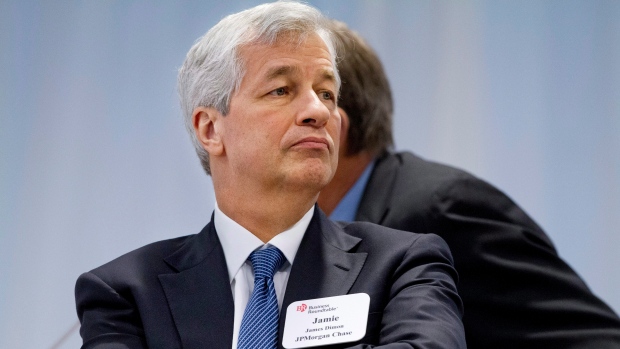Apr 4, 2017
Dimon calls for regulatory change in shareholder letter
, Reuters

JPMorgan Chase & Co (JPM.N) Chief Executive Jamie Dimon devoted one-third of his annual shareholder letter to arguments for changing regulations, particularly those on bank capital and liquidity, as well as home mortgage loan financing.
Current regulations are inconsistent and have left banks with "too much capital," some of which could be used to "finance the economy without sacrificing safety," Dimon said in the 17,349-word letter released on Tuesday.
He also warned that anti-trade policies could be disruptive and geopolitical risks are in a "heightened state."
Dimon, 61, has entered his twelfth year as CEO. He considers the annual letter to be among his most important public statements about JPMorgan, as well as public policy. It is widely read because the bank is one of the most profitable and came out of the financial crisis stronger than competitors.
This year, Dimon argued that the idea of banks being "too big to fail" and therefore requiring bailouts during times of stress, is a problem that "has been solved." He said "taxpayers will not pay if a bank fails" because of measures enacted since the crisis nearly a decade ago.
Dimon's comments on bank regulation come at a time of possible flux in rules and laws under a new White House and Congress.
In addition, the U.S. Federal Reserve governor who has been overseeing regulation, including bank capital stress tests, is leaving his post on Wednesday and a replacement has yet to be proposed by President Donald Trump.
The way the Fed conducts stress tests should be clearer and more consistent, Dimon said. He also said home mortgage rules imposed since the crisis have raised costs for consumers and made it less likely that those with weak credit histories will get loans.
"While some of the rules are beneficial, many were hastily developed," he wrote.
Dimon said the geopolitical risk environment is in a "heightened state" with the United Kingdom's pending withdrawal from the European Union and a growing anti-globalization sentiment.
He said he hopes Britain's exit will prompt the EU to fix issues it has with immigration, bureaucracy and restrictive labor laws. "Our fear, however, is that it could instead result in political unrest that would force the EU to split apart," which, he wrote, "could have devastating economic and political effects."
Dimon also warned that "poorly conceived" trade policies could be very disruptive, especially with regard to two key trading partners, Mexico and China.


